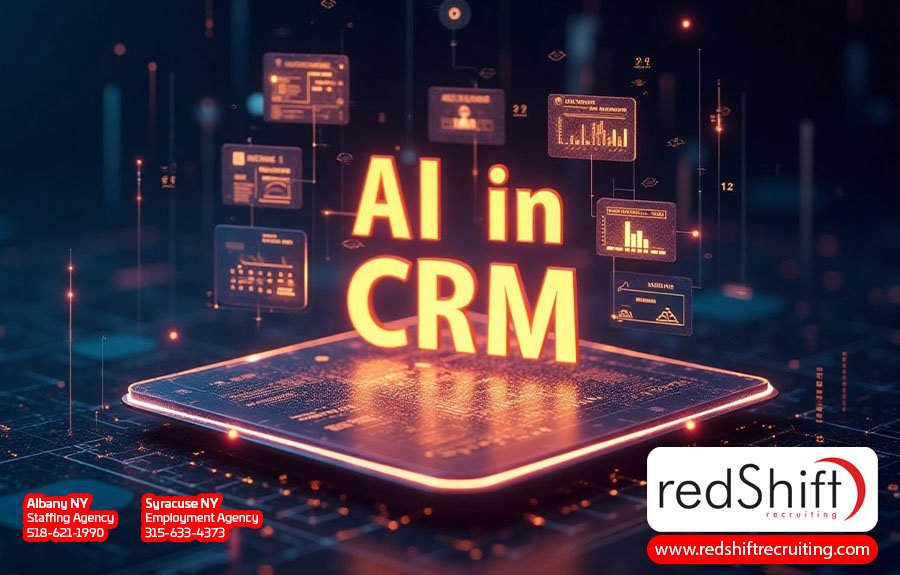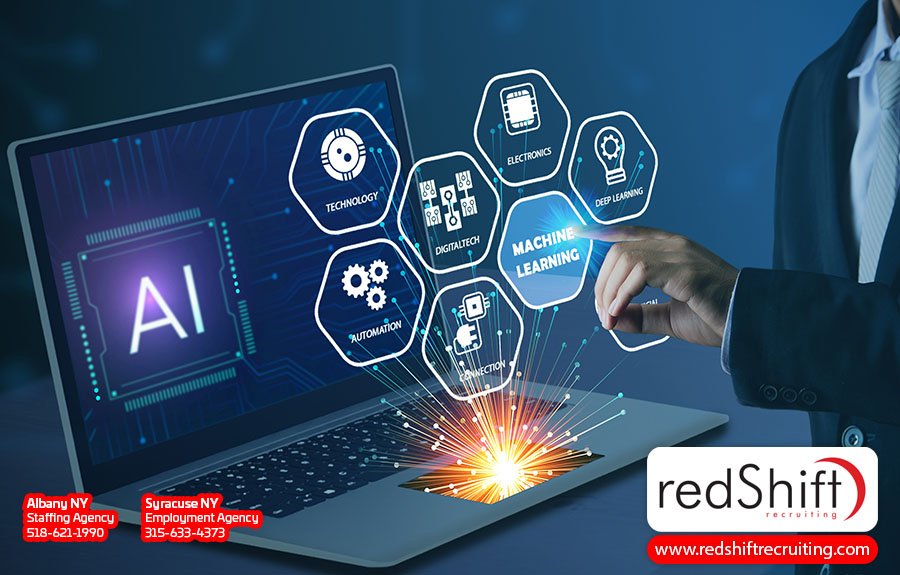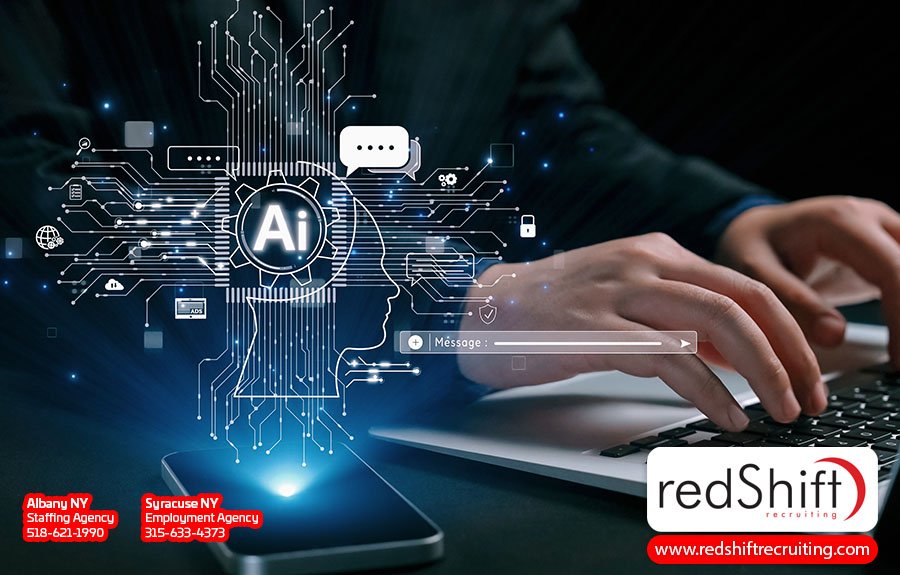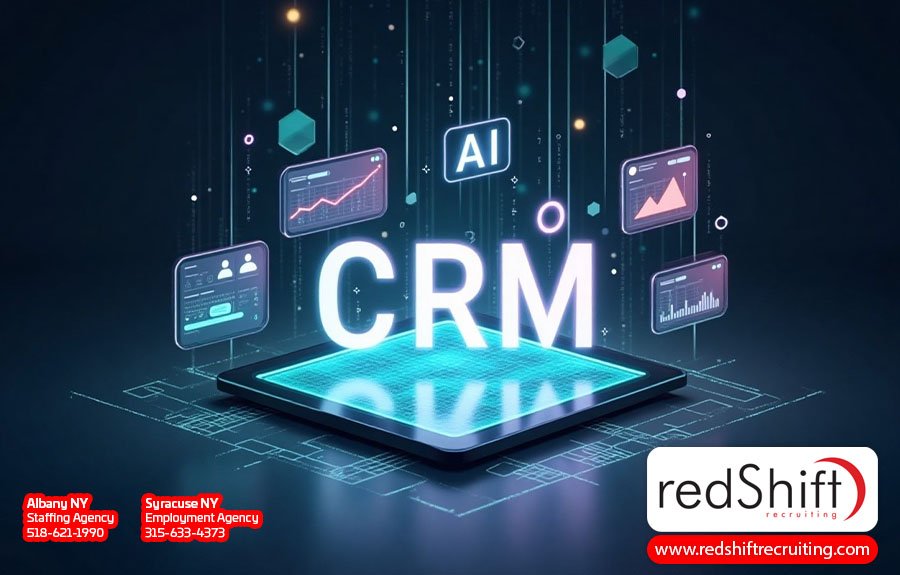The Role of AI in CRM Systems: What IT Professionals Should Know
Remember when CRM systems were basically just digital contact lists? Those days are long gone. From intelligent customer segmentation that uncovers hidden opportunities to automated service solutions that deliver 24/7 support, AI-powered CRM capabilities are creating both exciting possibilities and new challenges for IT professionals. As these advanced features transition from premium add-ons to standard expectations, technical teams are facing new demands that come with supporting increasingly intelligent systems. From ensuring data quality to addressing complex ethical questions around AI decision-making, the changing role of IT professionals working with CRM systems requires a significant shift in skills and responsibilities—while raising important questions about data management, security, and ethics. Whether you're supporting an existing CRM implementation or planning a new one, understanding the role of AI in CRM systems—and why it matters for your career—will help you navigate the intersection of artificial intelligence and customer relationship management with confidence.
AI-Powered CRM Capabilities
Customer Relationship Management (CRM) systems have come a long way from simply storing contact information. Today’s CRM platforms are powerful tools that unify sales, service, and marketing functions to provide a single, integrated view of the customer, analyzing data, enhancing sales forecasting, and improving customer satisfaction. As AI-powered CRM systems become more advanced, they’re unlocking capabilities that make these platforms not just smarter, but more strategic. Below are five of the most impactful ways artificial intelligence is reshaping CRM, helping sales teams use advanced algorithms to uncover customer preferences, behaviors, and trends, while enabling more targeted, effective marketing campaigns.
Customer Segmentation and Targeting
One of the most valuable applications of AI in CRM software is the ability to break down audiences into precise, highly targeted segments. Instead of relying on basic demographic categories, AI can analyze customer data at a much deeper level, capturing behavioral patterns, purchase history, browsing activity, and more. This information enables businesses to tailor offers and messaging based on real customer needs, not assumptions.
By using AI to improve customer segmentation, marketers can design marketing campaigns that feel timely and relevant. For example, instead of sending a generic promotion to everyone, a company could target high-value customers who’ve shown interest in a specific product category but haven’t made a purchase yet. These insights aren’t limited to a single channel, however. AI can aggregate behavior across email, social media, website visits, and even in-store interactions, giving businesses a unified view of how customers engage across various touchpoints. This level of insight is invaluable for predicting customer behavior and optimizing content delivery based on where each customer is in their decision-making process.
Sales Forecasting and Predictions
For sales teams, few things are more valuable than knowing what’s coming next. AI enhances traditional sales forecasting by analyzing large volumes of historical data and applying predictive analytics to anticipate future trends, highlight potential risks, and identify high-potential opportunities. This results in a more accurate, data-driven way to forecast customer behavior and support better decision-making.
An AI sales assistant can take things even further, monitoring tone and language in emails and call transcripts through sentiment analysis, flagging changes in customer engagement, and offering real-time suggestions to help sales reps tailor their approach and close deals. Another of AI’s biggest advantages is its ability to improve over time. As more data flows through the system, models become better at recognizing patterns, making predictions more accurate and aligned with real-world outcomes. When used effectively, these tools turn mountains of raw data into actionable insights that can be used to refine the sales process and help teams focus their efforts where they'll have the greatest impact.
Customer Service Automation
Customer service automation in CRM systems involves using AI to improve support experiences, especially through AI-powered chatbots and virtual assistants that can handle routine customer inquiries 24/7. These tools can automate data entry, provide personalized responses, and deliver immediate assistance, boosting customer satisfaction by improving both response times and service efficiency.
By offloading repetitive tasks, AI frees up human agents to focus on complex issues that require a personal touch. Many systems also leverage natural language processing (NLP) to interpret tone, urgency, and intent, helping prioritize support tickets, route conversations more intelligently, and enable smarter escalation paths. NLP can also parse messages to detect early buying signals or objections that might otherwise go unnoticed.
Beyond chatbots, CRM solutions powered by AI can identify recurring service issues, flag high-priority cases, and suggest helpful support articles or instructions based on the customer's question—all in real time. Because these systems rely on centralized CRM data, every interaction contributes to a more consistent, informed, and effective service experience—regardless of which team member responds to the ticket. Ultimately, AI allows support teams to respond faster and more accurately while improving the overall quality of customer interactions.
Personalized Marketing
AI helps marketing teams deliver content that’s not only timely but also personally relevant. By using behavioral data and machine learning models to understand customer preferences, AI tools can recommend products, customize emails, and even adjust website content based on a user’s real-time interactions. The result is personalized customer interactions that create more meaningful touchpoints and lead to improved customer satisfaction across the board.
What’s more, these tools enhance customer relationship management by anticipating what customers want before they ask for it. Instead of relying on reactive communication, businesses can proactively guide customers toward the right solutions, building loyalty and increasing conversion rates. Over time, this level of targeting helps marketers optimize their spend and improve campaign ROI, focusing resources on what works and eliminating wasteful efforts.
Lead Scoring and Prioritization
Not all leads are created equal, and AI is helping sales reps focus on the ones that matter most. By tracking customer interactions across channels and applying sales automation logic, AI can score leads based on behavior, fit, and likelihood to convert. These insights allow teams to optimize their sales process, moving qualified leads down the pipeline faster while avoiding wasted effort on low-potential prospects.
AI also brings clarity to performance metrics, helping managers see what’s working and where the bottlenecks are. And because these insights are often accessible via mobile CRM apps, sales teams can act on AI-generated lead scores and next-step suggestions from anywhere, keeping the sales process moving, even on the go. In short, smart lead scoring makes sales efforts more efficient and more effective.
The Impact of AI on IT Roles
As AI becomes more deeply embedded into CRM systems, the responsibilities of IT professionals are changing, expanding beyond infrastructure maintenance and technical troubleshooting to include enabling smarter, faster, and more personalized customer engagement across the entire CRM platform. From configuring AI tools to managing data flow and ethical governance, today’s IT teams play a central role in making AI in CRM both successful and sustainable.
Increased Demand for AI/ML Skills
With AI capabilities expanding across every layer of the CRM ecosystem, there’s a growing need for IT professionals who understand not only the technology but also how to apply it strategically. Companies increasingly rely on IT to support sales and marketing teams by integrating AI tools that can generate insights, recommend actions, and deliver timely and relevant communication to customers. These tools don’t just automate behind-the-scenes workflows—they also assist with front-line communication. For example, AI-powered sales assistants can streamline data capture, suggest next steps, and support meaningful customer engagement throughout the sales cycle.
This shift demands new skills in areas like machine learning, data integration, and AI model management. In some cases, IT may also need to fine-tune AI models to reflect company-specific data, goals, or workflows, making the output more accurate and relevant to the business. IT professionals are also expected to help teams access customer data in ways that support personalization, compliance, and data-driven decision-making—without compromising security or trust.
Evolution of IT Roles
The integration of AI into CRM processes is reshaping the roles of the IT professionals who support them, shifting day-to-day responsibilities from system maintenance and user access to the management of intelligent tools that streamline workflows and drive business strategy. This requires a new CRM skillset and a deeper collaboration with sales, marketing, and service leaders to understand the potential of AI tools and how they can be used to enhance the customer experience and deliver measurable value.
This changing skill set includes proficiency in AI system configuration, automated data entry setup, performance monitoring, and lifecycle management for AI-driven features. IT teams are also taking on greater responsibility for ensuring that these tools are used effectively across departments, making sure AI applications support the diverse goals of sales and operations leaders while staying aligned with broader organizational priorities and business operations. Embracing continuous learning and proactively expanding skill sets is key for IT professionals who want to stay relevant and lead confidently in this changing environment.
Focus on Data Management and Security
AI-powered CRM systems are only as effective as the data they rely on. As businesses increasingly depend on real-time data for decision-making, the importance of clean, well-integrated, and trustworthy data has never been greater. From merging siloed systems to validating data inputs, IT professionals play a foundational role in optimizing data flow across departments and ensuring CRM systems function as intended.
Security and privacy have also taken on heightened importance, as companies recognize the strategic value of data and consumers grow more concerned about how their personal information is collected, stored, and used. With AI expanding automation and increasing access to sensitive customer and company information, the risks of data misuse, exposure, or noncompliance are significantly elevated—not only from accidental leaks or poor configuration but also from external threats such as cyberattacks, data breaches, and malicious actors targeting vulnerable systems. IT professionals must proactively implement and maintain robust data governance strategies, covering everything from encryption protocols and access controls to threat detection systems and compliance monitoring.
They must also ensure adherence to an increasingly complex regulatory environment, including frameworks like GDPR, CCPA, and other regional or industry-specific guidelines. Beyond implementing technical safeguards, IT teams play a critical role in shaping and guiding responsible AI practices, building trust through transparency, ethical data use, and clear communication. These safeguards enable organizations to scale their business operations with confidence while protecting the integrity of their data and their brand.
Ethical Considerations and AI Governance
As AI becomes more deeply embedded in CRM software systems, it raises important questions around ethics, fairness, and accountability. These tools influence how companies collect, manage, and act on customer data, shaping everything from personalized outreach to automated decisions that impact real people. IT professionals are at the center of this complex discussion, responsible not only for technical implementation but also for ensuring these systems align with shifting standards for privacy, fairness, transparency, and compliance. The following considerations are essential for any organization using AI in CRM environments.
Data Privacy and Security
AI-driven CRM platforms rely heavily on the collection and processing of customer data, often in ways that are more complex and less visible than traditional systems. This raises ethical concerns about how that data is collected, stored, used, and shared. Customers expect their personal information to be handled with care, and mishandling it, even unintentionally, can erode trust and lead to serious legal consequences.
To uphold ethical standards, IT teams must apply best practices in data protection. This includes minimizing data collection where possible, limiting use to clearly defined purposes, encrypting sensitive information, and maintaining rigorous access controls. Consent management systems and audit trails are also essential for accountability. Importantly, organizations must also consider who has access to sensitive data and why—limiting internal permissions to only those who need it and remaining vigilant against both external breaches and internal misuse. These technical safeguards, paired with thoughtful governance policies, ensure that AI-enhanced CRM platforms respect user privacy while remaining compliant with global regulations.
Bias in AI Algorithms
AI models used in CRM systems can unintentionally reflect or amplify bias present in the data they’re trained on, leading to unfair treatment of certain customer groups or inaccurate personalization. For example, an algorithm trained on incomplete or skewed data might favor high-income customers or exclude certain demographics from receiving promotions or service follow-ups.
Mitigating bias starts with the data. IT and data teams should routinely evaluate datasets for representativeness and fairness before they’re used in training models, and AI systems should be monitored and tested regularly for biased recommendations or inconsistent decision patterns. In higher-impact applications, businesses may also choose to implement human-in-the-loop decision-making processes to provide additional oversight and reduce the risk of discriminatory or incorrect outputs. Transparent model selection, inclusive testing scenarios, and clearly defined fairness criteria can all help ensure CRM decisions treat customers fairly and without bias.
Transparency and Explainability
In many traditional systems, decision-making rules are explicitly coded and easy to trace. AI systems, especially those using machine learning, often function more like black boxes, making decisions based on patterns that are difficult to interpret. This lack of transparency can undermine user trust and make it harder to spot errors or explain outcomes.
IT teams should prioritize the use of explainable AI tools within CRM platforms, enabling stakeholders to understand how and why decisions are made. This is particularly important in high-stakes scenarios, such as lead prioritization or customer service escalation. Equally important is auditability. CRM systems should log AI decisions, user interactions, and system behavior to support review, traceability, and regulatory reporting. Making these processes clear—both internally and to customers when appropriate—builds trust, supports compliance and customer retention, and helps ensure accountability across all AI-driven customer interactions.
AI Governance and Regulation
As governments and industry groups race to regulate AI, businesses must stay ahead of a rapidly changing compliance landscape. Regulations like the EU AI Act, the U.S. AI Bill of Rights, and sector-specific guidelines are shaping how companies can build, deploy, and manage AI systems, especially those that handle personal data or influence customer outcomes.
IT professionals play a key role in ensuring that AI-driven CRM systems are compliant with these evolving standards. This work includes conducting risk assessments, documenting model behavior, participating in internal audit processes, and aligning with corporate governance policies. Some organizations are also establishing internal AI ethics committees or cross-functional review boards to evaluate high-impact use cases and ensure alignment with company values. Ongoing monitoring of AI model performance and usage, such as auditing for unintended outputs or data misuse, is also essential for maintaining accountability and long-term compliance. By treating AI governance as a shared responsibility—not just a legal obligation—businesses can foster ethical innovation while minimizing risk.
Adoption Barriers and Challenges
Despite the promise of AI-powered CRM systems, many organizations encounter significant roadblocks when trying to put them into practice. From financial constraints to cultural resistance and technical limitations, adoption isn’t always straightforward. IT professionals play a key role in navigating these barriers and helping businesses move from curiosity to confident implementation through thoughtful planning, communication, and infrastructure alignment.
Cost and Implementation Complexity
Integrating AI into CRM systems often requires a substantial upfront investment—not just in software, but in the time and expertise needed to configure, train, and support the system. For many small to mid-sized businesses, this can be a deterrent, with costs including licensing AI modules, upgrading infrastructure, hiring consultants, or reallocating internal resources. Many businesses also underestimate post-implementation costs, such as retraining AI models, supporting user adoption, or managing platform updates. Additionally, AI features may require more computing power or advanced integrations than existing platforms currently support.
To manage these challenges, companies should adopt a scalable approach. That might mean starting with targeted use cases, such as sales forecasting, lead prioritization, or customer service automation, before expanding to full-scale adoption. Working with vendors who offer modular or cloud-based CRM solutions can help control costs while still allowing access to powerful AI capabilities. The goal is to implement AI in a way that aligns with both business objectives and operational capacity.
Resistance to Change
Even the most advanced AI tools can fall flat if teams don’t buy in. Resistance may stem from a wide range of concerns, including fears about job security, lack of understanding, or discomfort with automation replacing familiar workflows. Employees may also worry that AI will reduce human involvement or add complexity to daily tasks.
Overcoming user resistance requires proactive communication and change management. IT and leadership teams should start by explaining how AI will enhance—not replace—existing roles, whether that means automating routine tasks, reducing manual data entry, or providing actionable insights to improve customer engagement. Hands-on training, realistic use cases, and open dialogue go a long way in building trust, while framing AI as a sales assistant or support tool that augments (rather than replaces) human decision-making can help teams feel more comfortable with the shift.
Integration with Existing Systems
One of the most overlooked challenges of AI adoption is compatibility. Many organizations still rely on legacy CRM systems that were never designed to support intelligent automation, and integrating AI features like sentiment analysis, real-time recommendations, or advanced data analysis may require custom development, middleware, or platform upgrades. Fragmented data across multiple systems can further complicate integration, especially when CRM data lives in disconnected sales, support, or marketing platforms.
From mapping existing CRM processes to identifying integration gaps, IT professionals ensure that new tools work seamlessly with the current ecosystem. Strong data hygiene and well-documented structures are also essential, as AI tools must be able to analyze customer data effectively to deliver accurate results. By planning for integration early and collaborating across departments, companies can adopt AI in a way that enhances, rather than disrupts, their workflows.
Preparing for the Future of AI-Powered CRM Systems
As AI becomes more central to CRM strategy, IT professionals must take a proactive approach to developing alongside the technology. Continuous learning is essential, especially in areas like AI and machine learning, data science, and cloud computing. Platforms like Coursera, edX, LinkedIn Learning, and vendor-led certifications from Microsoft or Google can help sharpen technical expertise and keep teams current with emerging trends. Just as importantly, IT leaders should build soft skills that support cross-functional collaboration with sales, marketing, and service teams.
Exploring new technologies—such as cloud-native CRM platforms, no-code AI tools, and real-time data analysis solutions—can unlock fresh ways to generate customer insights, streamline customer inquiries, and support smarter decision-making across the business. Building a strong foundation remains just as critical as exploring new features. Effective AI deployment depends on maintaining clean, well-structured CRM data, ensuring consistent CRM processes, and investing in infrastructure that can scale with growing demands. Whether enhancing sales automation, improving customer interactions, or turning historical data into actionable insights, future-ready CRM systems will require not just smarter tools but smarter strategies. For IT professionals, the opportunity lies in leading that evolution with clarity, adaptability, and a strong commitment to data-driven decision-making.
Frequently Asked Questions
How Is AI Used in CRM Systems?
AI is used in CRM systems to automate tasks, personalize customer engagement, and analyze large volumes of data to generate insights. It powers features like lead scoring, customer segmentation, predictive analytics, and AI-powered chatbots that can handle customer inquiries at scale. These tools help businesses improve efficiency, increase responsiveness, and tailor their strategies to real-time customer behavior.
What Are the Biggest Challenges to Implementing AI in CRM?
Common challenges include high implementation costs, integration with legacy systems, employee resistance, and inconsistent or poor-quality data. These issues can slow adoption and reduce the effectiveness of AI if not addressed early in the process. To overcome them, organizations need scalable strategies, cross-functional collaboration, and ongoing IT leadership to support change.
How Can Businesses Ensure AI in CRM Is Ethical and Unbiased?
Businesses can reduce bias by using representative training data, testing AI systems for fairness, and maintaining human oversight where needed. Clear governance policies, transparent algorithms, and regular audits also help ensure ethical decision-making. When implemented thoughtfully, AI in CRM can enhance customer trust and support more inclusive customer experiences.
What Skills Do IT Professionals Need to Manage AI-Powered CRM Systems?
IT professionals should have expertise in data analytics, machine learning, CRM integration, and cloud computing. Familiarity with tools like Python, AI model monitoring, and data governance is also valuable. Just as important are collaboration and communication skills to work effectively with sales, marketing, and customer service teams.
How Can Businesses Find IT Professionals With AI/ML Expertise for CRM?
Partnering with an IT staffing agency or recruiting candidates with AI/ML certifications is a practical first step. Look for individuals with experience in CRM systems, data pipelines, and AI-powered automation. Hiring professionals who understand both the technical and business sides of CRM will lead to smoother implementations and stronger outcomes.
Conclusion
As AI continues to transform CRM systems from simple contact databases into sophisticated customer intelligence platforms, IT professionals find themselves facing both new challenges and exciting opportunities. The journey isn't just technical—it requires balancing powerful new skills in data science and machine learning with important ethical considerations while addressing legitimate adoption concerns and continuously developing new skills. Although the learning curve may seem steep, the professionals who embrace this change and proactively develop their skillset will become valuable assets to their companies while helping them build deeper, more meaningful customer relationships. The future of CRM belongs to those who can bridge technical expertise with business insight, data management with privacy protection, and automation efficiency with human judgment. For IT teams willing to adapt and grow alongside these technologies, the opportunities to drive business value have never been greater or more rewarding.
Article Author:
Ashley Meyer
Digital Marketing Strategist
Albany, NY







